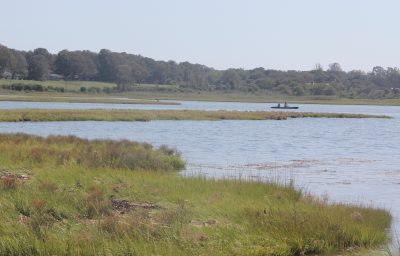
UConn Professor Beth Lawrence collaborated with two high school teachers to create a salt marsh-climate change teaching module for high school students.
In the “Impacts of Climate Change on Long Island Sound Salt Marshes” module, students learn about the natural and anthropogenic impacts of climate change on salt marshes, delve into how scientists are studying the various impacts on salt marsh habitat, and gain a overview of different techniques for climate change research.
The module is suitable for ninth and tenth-grade biology or general science students as well as upper-level elective courses such as environmental science or marine science.
Connecticut Sea Grant support enabled Lawrence to collaborate with the high school educators to develop the inquiry- and evidence-based instructional materials about local climate issues. Leveraging an ongoing Long Island Sound Study research project, they developed an interactive climate change module for high school students that integrates “Mystery Scientist” activities to highlight different avenues of inquiry and a case study on how sea level rise is altering coastal ecosystems associated with Long Island Sound communities.
The module is aligned with Next Generation Science Standards, providing evidence-based, student-centered instructional materials highlighting how global issues impact local environmental issues. The module is being made broadly available through various platforms to encourage adoption by high school teachers throughout the region.
Module materials can be downloaded here.